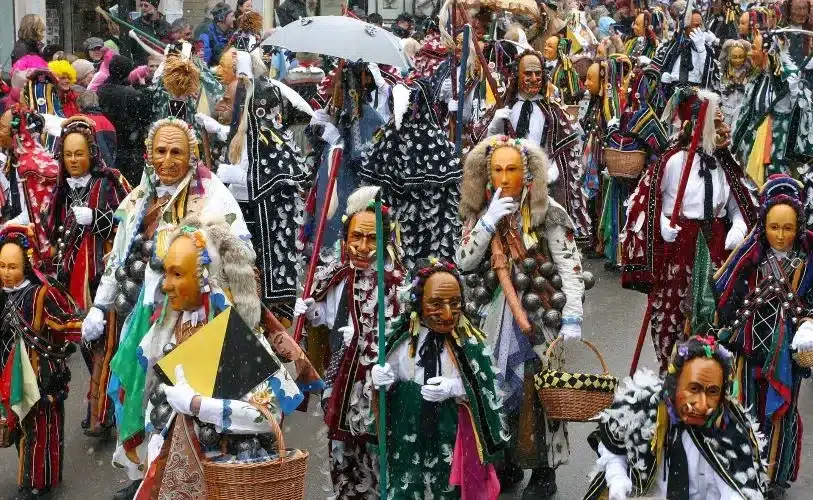Rosenmontag is the highlight of Germany’s six-day-long pre-Lent Carnival festivities. The annual event is a chance for the public to dress up in fancy dress, lampoon each other and watch or take part in the street parades featuring no-holds-barred satire.
Rosenmontag is a German carnival celebration that takes place on the Monday before Ash Wednesday, which marks the beginning of Lent. The term “Rosenmontag” can be translated to “Rose Monday” in English.
In 2023, the celebration will be observed on 20 February.
The celebration is particularly popular in the Rhineland region of Germany, but it is also observed in other parts of the country and in neighboring countries such as Switzerland, Austria, and Belgium. It is a day of parades, costumes, music, and general merriment.
One of the highlights of Rosenmontag is the parade, which typically features elaborate floats and costumed participants. The floats often satirize current events or political figures, and the participants throw candy, flowers, and other small items to the crowd.
In some areas, Rosenmontag is also known as “Fasnacht” or “Fastnacht,” which is a term that refers to carnival season in general.
History of Rosenmontag
The history of Rosenmontag can be traced back to the Middle Ages in Germany. It was originally a day for the nobility to celebrate, but it gradually became a popular celebration for people of all social classes. The name “Rosenmontag” is said to have originated from a custom of the nobility to distribute roses to the common people during the parade.
Over time, Rosenmontag and carnival season in general became a way for people to let loose before the solemn period of Lent. The parades and festivities were a way to celebrate and indulge in food, drink, and merriment before the period of fasting and reflection.
During the 19th and 20th centuries, Rosenmontag became an even more popular and elaborate celebration, with the addition of elaborate floats, costumes, and music. Today, Rosenmontag is celebrated in many parts of Germany and neighboring countries, and it is a beloved tradition for many people.
Significance of Rosenmontag
Rosenmontag is an important part of the Carnival season, which begins on November 11 and ends on Ash Wednesday. During this time, people in Germany, especially in the Rhineland, dress up in colorful costumes and take part in parades, parties, and other festivities.
The significance of Rosenmontag lies in its role as the high point of the Carnival season, a time for revelry and celebration before the somber period of Lent begins. The day is marked by elaborate parades, with floats decorated in a variety of themes and participants tossing candy, flowers, and other treats to the crowds.
Rosenmontag is also known for its satirical and political commentary. Many floats and costumes are designed to poke fun at current events and public figures, and the day is often used as a platform for expressing dissent or criticism.
In addition to its cultural significance, Rosenmontag is an important economic event in the Rhineland region. The celebrations draw large crowds of tourists, and the parades and associated events generate significant revenue for local businesses and service providers.
Overall, Rosenmontag is an important and beloved holiday in the Rhineland region, a time for people to come together and celebrate community, culture, and tradition.

